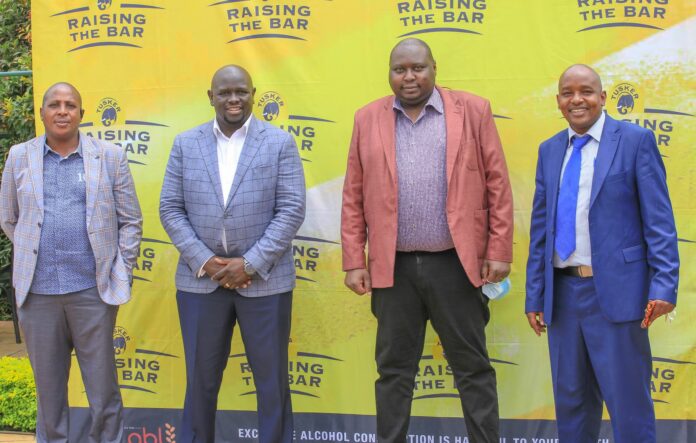The National Bar Owners Association has asked the national and county governments to consult widely and adhere to the principles of a free-market economy as it implements an agreement reached last week for regulation of the alcoholic beverages sector.
Members of the association said the agreements reached at a meeting in Nyeri last week presided over by Deputy President Rigathi Gachagua would require the two levels of government to tread carefully.
Speaking at a press conference in Nairobi, the association said the governments need to strike a balance between addressing a social concern and maintaining a business-friendly environment that encourages investment and job creation.
“A unilateral approach to this menace will mean that there will be a proliferation of illegal trade thereby denying the government its fair share of revenue in form of taxes,”
said Boniface Gachoka, the association’s secretary general.
The association is of the view that the campaign spearheaded by Deputy President Rigathi Gachagua is a welcome move as it would promote public participation and the involvement of all stakeholders in tackling the menace.
850 bars, eateries to benefit from KBL’s 220 Million COVID-19 economic recovery programme
The communique issued last Friday provides a structured approach to dealing with the alcohol abuse menace, said the association, but noted that the rapid increases of tax on alcohol have contributed to consumers, especially the lower-income range, turning to the cheaper and unfortunately easily available illicit liquor in the market.
“The problem in alcohol abuse begins with the easy availability of illicit alcohol in the market, much of it the product of suspicious manufacturers,” said Mr Gachoka.
The association said that despite communique issued in Nyeri, the harassment of bar and liquor traders has continued in Kiambu, Murang’a, Kirinyaga, Embu and Laikipia through arbitrary and unfair arrests on the pretext that they are operating beyond hours.
The association said the proposal to limit the number of alcoholic outlets per area amounts to the government interfering with the operations of legible investors who should be allowed to set up their businesses and then compete in an open market for customers.
Addressing the issue would also require that county governments have uniform liquor rules to provide predictability.
“On the proposal to undertake a census exercise that covers manufacturers and distributors of alcoholic drkins within counties, the association’s view is that it is essential that this is done with a well-established structure and rules to ensure that only legitimate businesses thrive. As we have often stated, the problem with alcohol and drug abuse starts with checking the quality of the products in the market,”
said Simon Njoroge, the association’s chairman.
The association said the proposed amendments to existing regulations should be preceded by comprehensive stakeholder engagements across the country, incorporating best practices and aiming to foster an enabling business environment.
They said the proposal to map, vet and inspect outlets selling alcohol is welcome but it would be crucial to ensure the criteria is agreed upon beforehand and published to provide businesses with clear guidelines.
Former FKF President Sam Nyamweya breaks silence after Omanga’s bedroom video leaked online
Bahlita also backed the proposed closure of all unlicensed outlets and have the vendors prosecuted since unlicensed outlets are a major contributor to alcohol abuse as they trade in unregulated illicit products while at the same time denying the government the much needed revenue.
“Bahlita wishes to categorically state that it supports the government’s efforts in fighting illicit brews in the country. However, we reiterate that the implementation of such measures should not be detrimental to the entrepreneurs who are conducting fair business across the country,” said Mr. Njoroge.









